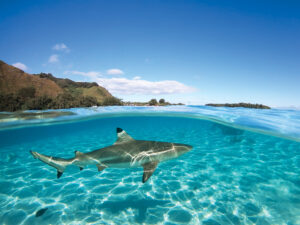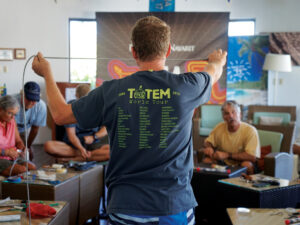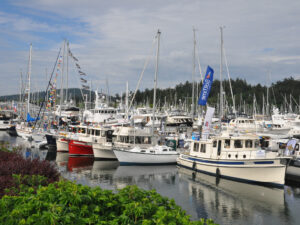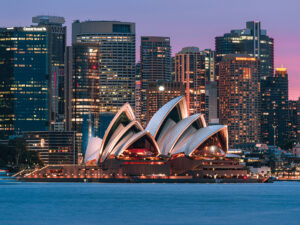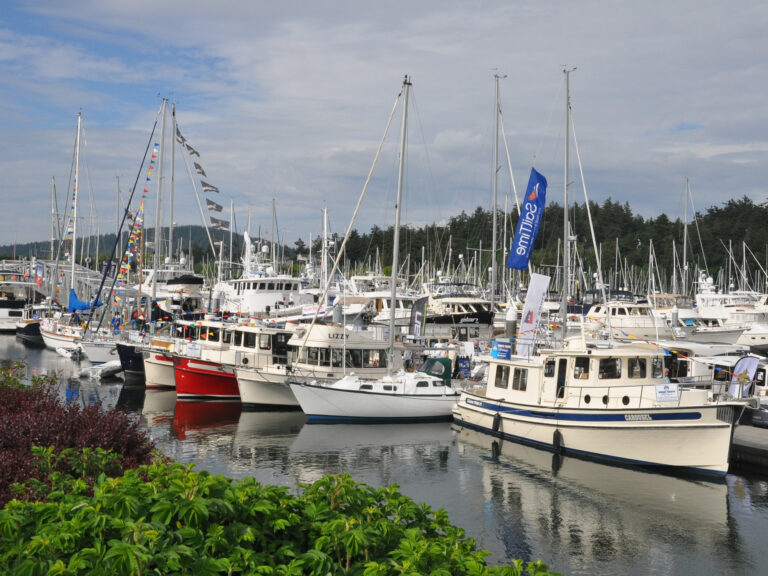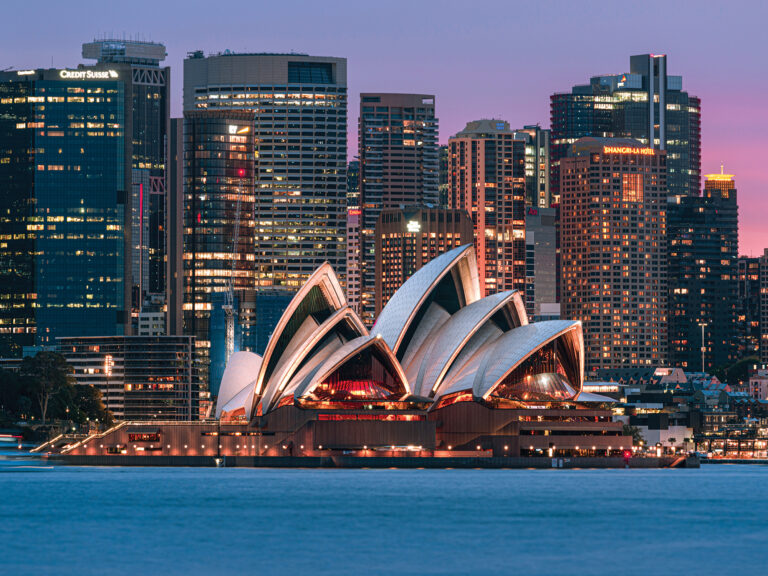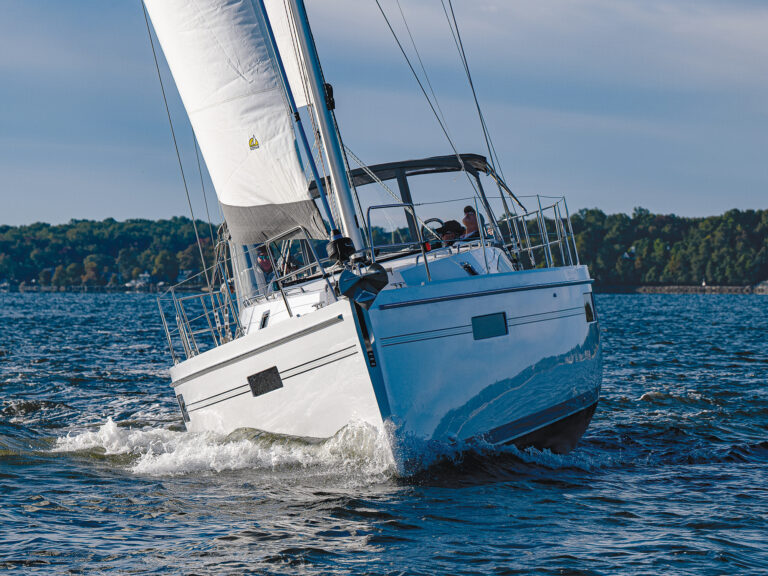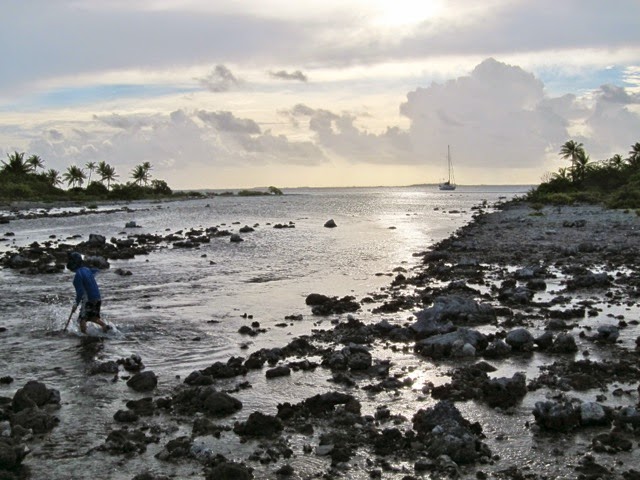
One of the things that life on a traveling boat does very well is transitions.
You get used to atolls, say, but then the season is turning and it’s time to light out for the mountainous islands to the south. And the four days that it takes to sail to the next place give you all the time that you need to reflect on what you’ve seen, and to let the anticipation for the next place build.
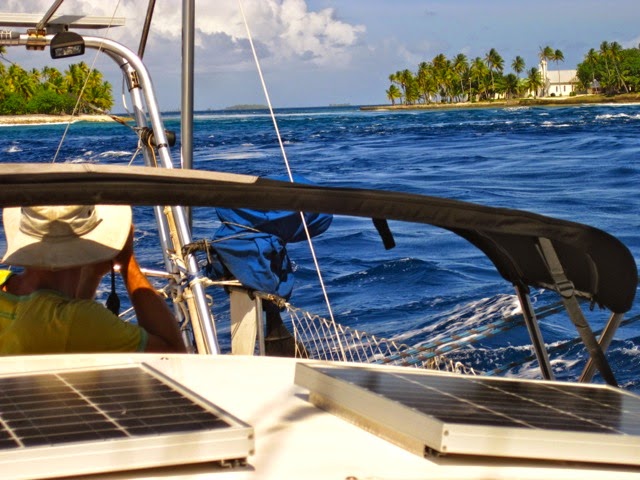
The passage to Raivavae was a mixed bag. A booming run with the jib poled out for the first time in months. Headwinds. Calms. Squalls and blue skies.
And then, this place, so different from anywhere we’ve ever been.
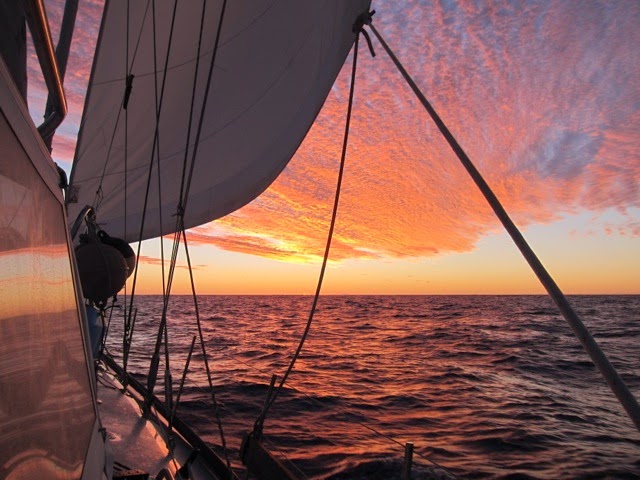
Raivavae is in the Australs, the southernmost archipelago in French Polynesia. They are well off the beaten path for yachts, and thus offer the promise of a certain degree of time travel – the chance to go back to a time before locals’ expectations had been colored by hundreds and hundreds of boat visits each year.
The physical contrasts with the Tuamotus are everywhere.
The wind sets up a profound silence here that you don’t get in the Tuamotus, where the boom of surf on the reef colors every moment, day and night. Here the wind whispers and sighs in the trees, familiar sounds that are the backdrop for a profound silence. So different from the endless slatting of atoll coconut fronds in the tradewinds.
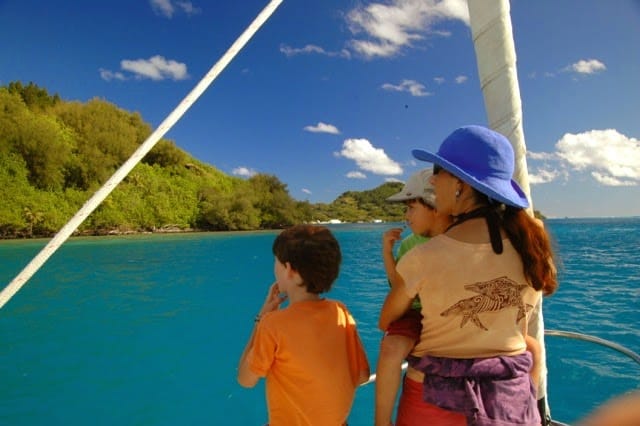
Here the rain just drops from the sky, miraculous gentle rain released from the mountain slopes without all the sturm-und-drang of squalls in the Tuamotus.
And, here there are mountains.
A mountain gives the landscape some mystery, a suggestion of some place that can’t be immediately known.
And mountains give people a place to run to, in times of need. The Tuamotus, by contrast, are so exposed, such naked and vulnerable little bits of land. Very foreign terrain for those of us who come from landmasses that cannot be seen across.
Revitalized, we find ourselves re-engaging with the travel life. We are consciously putting ourselves forward. The whole family sets out to hitch-hike to a village where dance might or might not be going on. We ask permission to view the tiki in a stranger’s backyard. Alisa has met with the mayor, just as she meets with the mayor in every village where she will distribute lunettes.
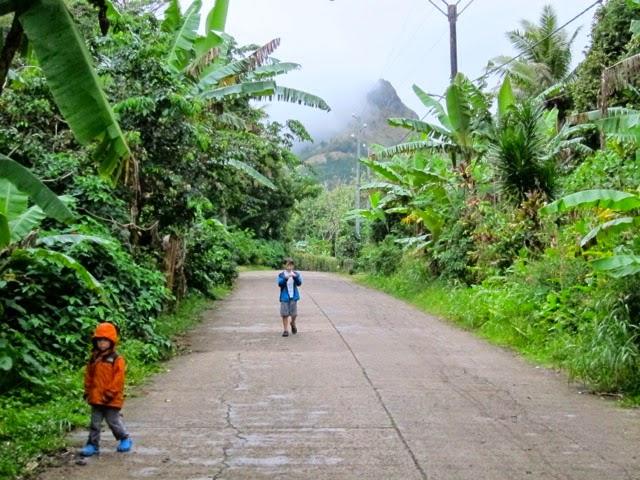
There have been moments when finally arriving at this place that I have dreamed of for so many years has me thinking of the big picture.
Is there something important going on, something obvious that we are missing because our days are so full of the mundane details of keeping everything going?
Is there some song that all these people and all these places are singing, a song we could start to hear if we just stood still to listen?
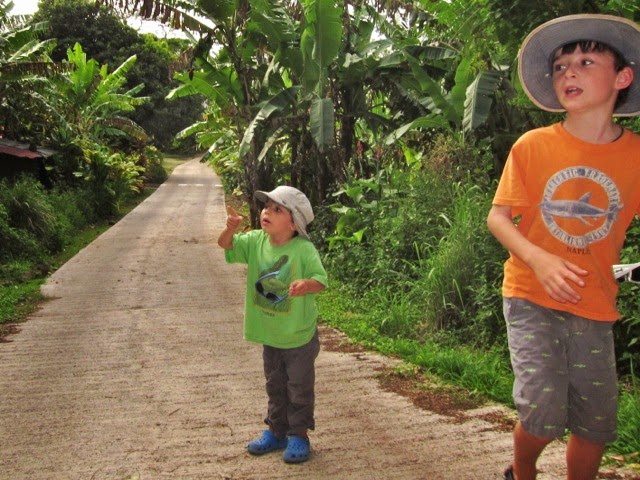
It’s always a dangerous moment when travelers start to seek something larger from their travels, when they start to look for the information that only wandering could reveal, the lesson that their stay-at-home friends will find invaluable upon their return.
It’s not a mistake that one of the finest travel books of all time, The Songlines, was a novel.
You don’t give up looking, of course. Or at least being curious. But the lessons are contingent. They are personal. We are who we are. The world is what it is. We go to sleep without the big questions being answered.
Meanwhile, we have this place to explore.
Meet the crew of Galactic: Mike and Alisa Litzow and their sons Elias and Eric. “When we left Alaska to sail to Australia with our toddler for crew, we thought it was a once-in-a-lifetime thing. But then we had our second child, and bought our second boat, and sailed across the Pacific a second time. We’ve been living aboard for seven years now. Sometimes we wonder how long we’ll keep at it, but all we know for sure is that the end doesn’t seem to be in sight just yet.” Follow their story at http://thelifegalactic.blogspot.com

